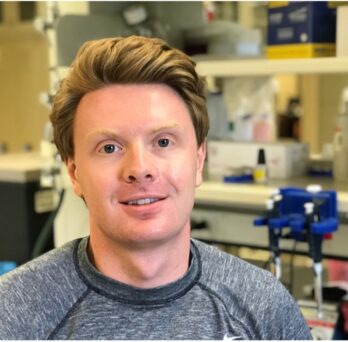The Graduate Education in bioMedical Sciences Program (GEMS) is a pipeline program to a variety of departmental biomedical programs within the UI College of Medicine.
UIC is ranked by the Carnegie Commission on Higher Education as an R1 research institution, which is one the GEMS program’s biggest strengths, including an environment of interdisciplinary innovation. The GEMS program provides PhD training to intellectually curious and diligent individuals interested in research in any area of the biomedical sciences.
Pride points Heading link
-
120 + faculty members
-
350 + students trained since 2004
-
6 research concentrations
Helpful Links for Prospective Students Heading link
Overview Heading link
The Graduate Education in bioMedical Sciences (GEMS) program is the PhD degree granting program for the Medical School. Our mission is to provide a combination of skill-based and knowledge-based training to our students, empowering the next generations of scientists aimed at the betterment of humankind through a variety of biomedical research related careers.
Research concentrations
Faculty members and scientific areas of training are organized within the GEMS umbrella via six Research Concentrations:
- Cancer Biology
- Cell Biology and Regenerative Medicine
- Integrative and Translational Physiology
- Microbiology Immunity and Inflammation
- Molecular Biology and Genetics
- Neurobiology
More information Heading link
Diversity in GEMS
GEMS works with the Office of Graduate Diversity Programs a to cultivate opportunities for diverse groups of students. We encourage students from all backgrounds with records of exceptional achievement to apply. UIC does not discriminate on the basis of nationality, race, socioeconomic status, sex, sexual orientation, or disability.
Program history
GEMS began in 2003 as an umbrella program through which PhD students would enter into the degree granting programs of the six basic science departments in the College of Medicine. The primary goals at that time were to provide a common multidisciplinary core curriculum for first year students and to give new students opportunities to perform dissertation research in any lab regardless of departmental affiliation. For the next 15 years, this basic structure was maintained and was supplemented with additional support from the College of Medicine Dean’s office and the Center for Clinical and Translation Science, new courses and curricula, and a vibrant GEMS Student Association (GEMSSA).
In 2016, a major overhaul of the GEMS program was initiated with an examination of the current and future needs of bioscience PhD graduates. Biomedical research has changed to become more collaborative to conduct transdisciplinary endeavors. The amount of scientific knowledge is rapidly increasing, and the career marketplace for new Ph.D. graduates has also changed. A plan was crafted to modernize GEMS, preparing graduates for the modern biomedical research environment and preparing the program to change as science changes in the future.
Major changes taking place in 2018-2019 are resulting in GEMS being the PhD granting entity and centralizing student support and organization of all students in GEMS throughout their PhD training periods. The centralized program emphasizes development of skills and competencies (critical thinking, rigor, responsibility, leadership, communication, etc.) and interdisciplinary biomedical research knowledge to prepare students for mentored research in their dissertation labs. The revamped program provides individualized training experiences for students, integrates career development resources with training, and uses evidence-based approaches to guide future changes. GEMS maintains its umbrella structure in that matriculating students can choose to follow any area for their thesis research. Six research concentrations organize the GEMS faculty labs and provide focus for curricula to develop areas of expertise for students as they progress in the program.
GEMS News Heading link

Participate in Rotation Projects Heading link
Rotation Projects provide 1st year students the ability to choose to rotate through labs that meet their research interests. As part of GEMS 506, all 1st-year students must complete three research rotations before they choose their lab beginning in the summer of their second year.
If you are a Faculty PI, complete the project form to have your projects included.
